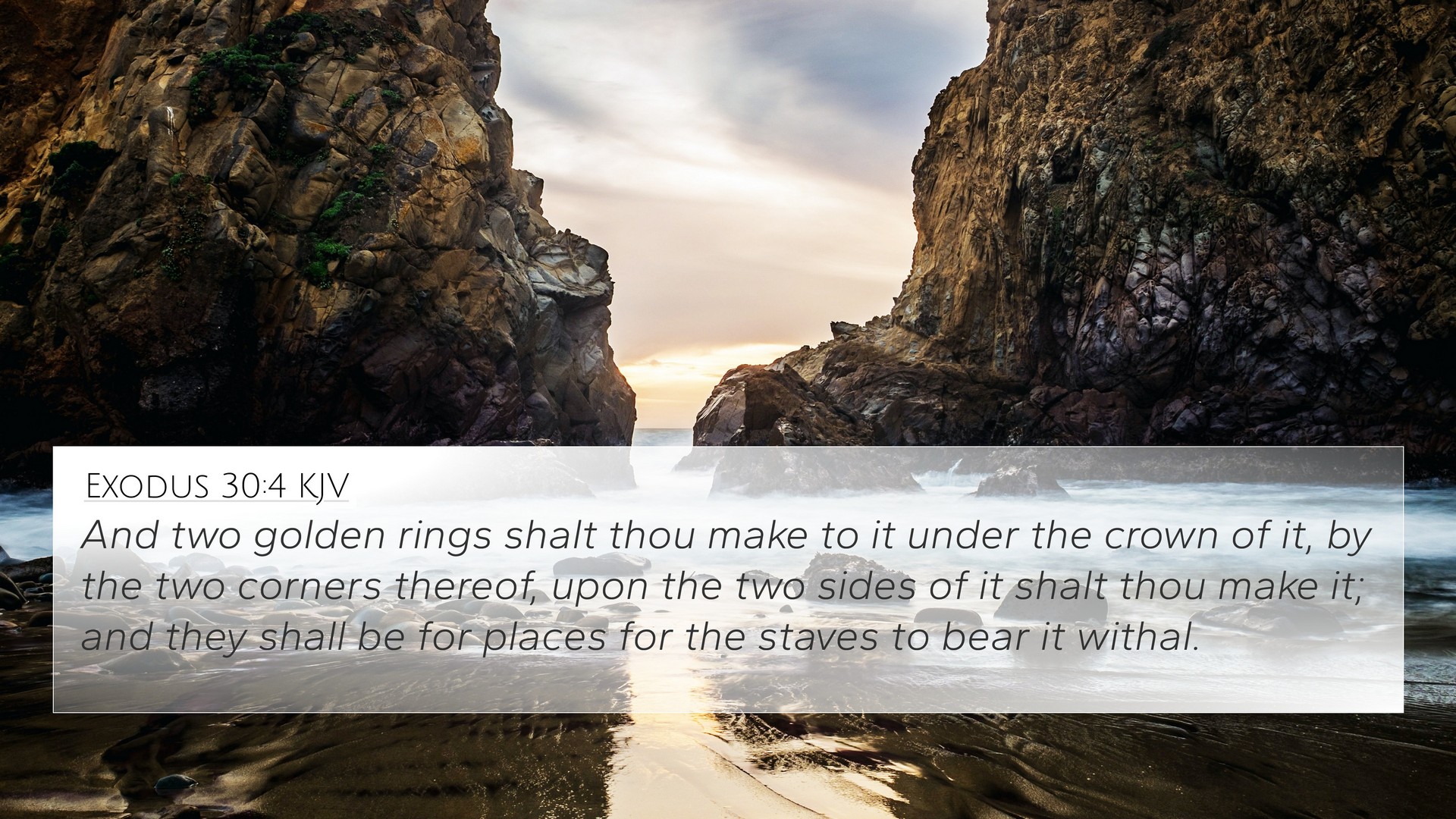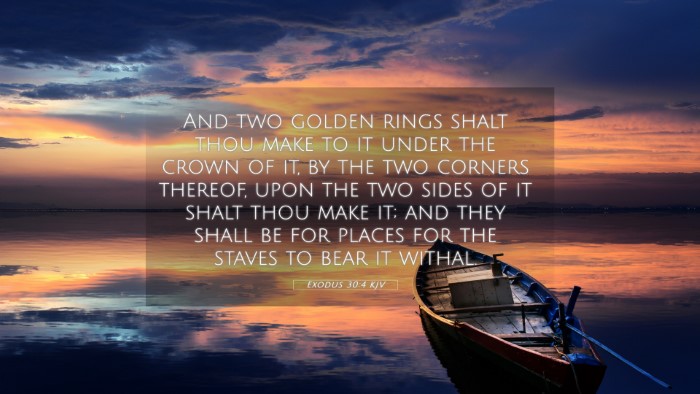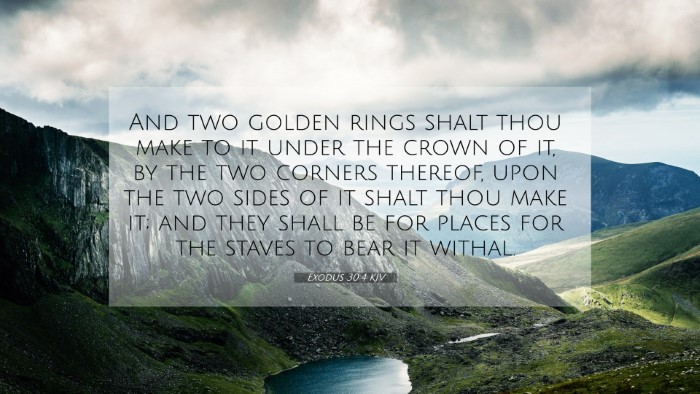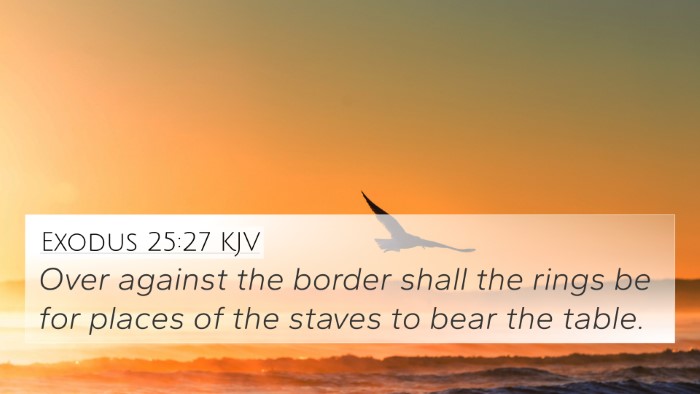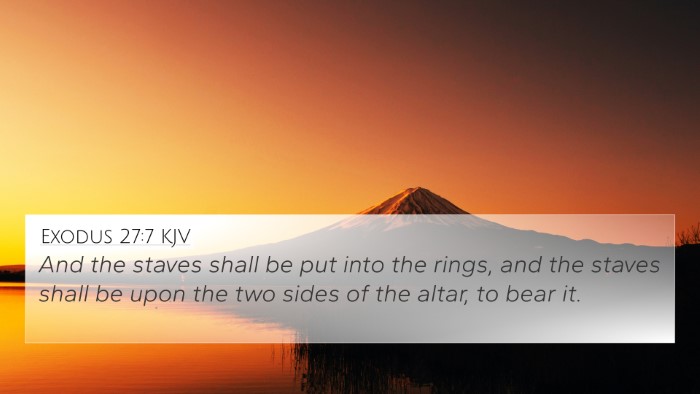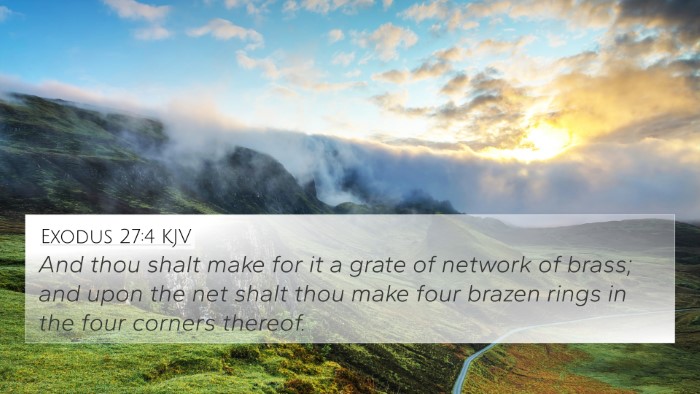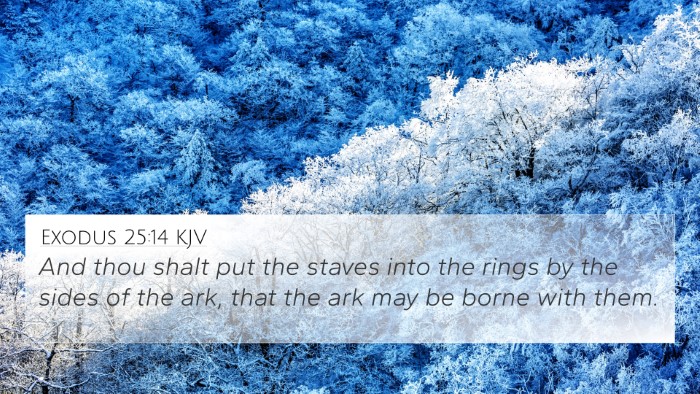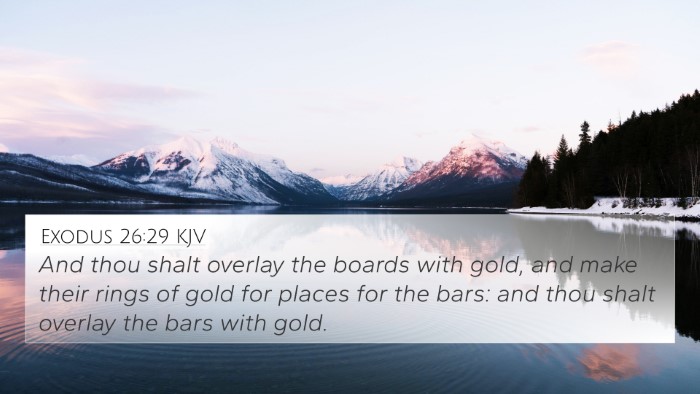Exodus 30:4 - Summary and Commentary
Verse: "And you shall make for it a grating of network of bronze; and on the net you shall make four bronze rings, and put the rings at the four corners that are on its four legs."
Meaning and Interpretation
Exodus 30:4 describes the construction of a bronze grating for the altar. This specific instruction is part of the guidelines given to Moses regarding the construction of the tabernacle and its furnishings.
Insights from Commentaries
This verse emphasizes the meticulous detailing inherent in the construction of the sacred space where worship would take place. Multiple public domain commentaries provide insight into its meaning:
-
Matthew Henry:
Henry highlights that the altar's design reflects God’s order and purity required for worship. The bronze grating signifies the necessity of offerings being made in a way that honors God's commands.
-
Albert Barnes:
Barnes notes the pragmatic aspects of the grating, pointing out its role in allowing ashes to fall through while containing the offerings. This feature symbolizes the humility appropriate for worshippers approaching God.
-
Adam Clarke:
Clarke explores the symbolism inherent in the bronze, noting its association with judgment and sacrifice, important themes within the context of atonement. He comments on the significance of the four rings, suggesting they symbolize completeness and the four cardinal points of the earth.
Cross-References and Thematic Connections
Exodus 30:4 can be cross-referenced with several significant verses throughout the Bible that carry similar themes of holiness, sacrifice, and worship. These verses illustrate connections between Bible verses and expand understanding through thematic exploration:
- Exodus 27:2: Further details the construction of the altar, establishing the setting for sacrificial practices.
- Leviticus 1:9: Discusses the holiness required in offerings, connecting to the grating's function in maintaining purity.
- Hebrews 9:22: Captures the necessity of blood for atonement, reflecting on the sacrificial system outlined in the Old Testament.
- 1 Corinthians 3:13: Mentions the testing of works by fire, paralleling the altar’s design that speaks to the purifying nature of sacrifice.
- Exodus 30:18: Discusses the bronze basin, reinforcing the importance of purification in the worship process.
- Numbers 4:14: Details the transport of sacred objects, emphasizing the reverence associated with these items.
- Romans 12:1: Calls believers to present their bodies as living sacrifices, reflecting the altar's longstanding function as a place of sacrifice.
- Psalm 51:16-17: Speaks to the kind of offerings God desires, echoing the heart behind sacrificial worship.
- 2 Chronicles 29:21: Highlights the importance of consecrated offerings for atonement in the temple worship atmosphere.
- 1 Peter 2:5: Refers to believers being a holy priesthood, tying back to the roles established in the Old Testament.
Conclusion
Exodus 30:4 provides profound insights into the nature of worship, the significance of sacrifice, and the meticulous details that characterize God's instructions for His people. The cross-references illuminate the continuous dialogue throughout the scriptures regarding themes of holiness and atonement, making it essential for deeper understanding and spiritual application.
Tools for Biblical Study
For those seeking to explore these themes further, tools such as a bible concordance or a bible cross-reference guide can prove invaluable. Understanding how to use bible cross-references enhances one's study, revealing connections between Bible verses that may not be immediately apparent.
Further Exploration
To engage in a comparative Bible verse analysis, consider exploring the specific relationships between Old and New Testament passages. This study can deepen one's faith and understanding of God's overarching narrative in the scriptures.
FAQs
Q: What verses are related to Exodus 30:4?
A: Related verses include Exodus 27:2, Leviticus 1:9, and Hebrews 9:22, among others.
